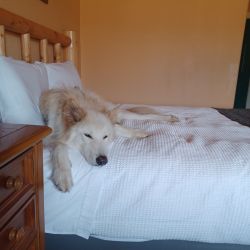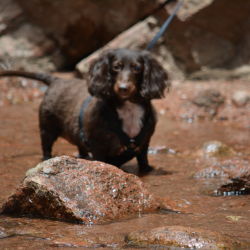Origins and Temperament
The Siberian Husky, originally bred by the Chukchi people of Siberia as both a sled dog and a companion, carries a storied history of endurance and adaptability. Known for their friendly demeanor and pack-oriented nature, Huskies thrive on companionship and interaction. Their keen intelligence and independent streak can present challenges in travel as they may become bored or anxious without proper stimulation.
Size and Physical Needs
Averaging between 35 and 60 pounds, Siberian Huskies are medium-sized dogs with a thick coat that protects them in cold climates. While they are adept at staying warm, excessive heat can pose a risk. Their need for regular exercise means ample space and time for activity is crucial during travel to maintain their physical well-being.
Common Health Considerations
Siberian Huskies are generally hearty but are prone to conditions like hip dysplasia and certain eye issues. Secure health documentation, including vaccination records and clearance from a veterinarian for travel, is essential to ensure they are fit for the journey and comply with any travel regulations.
















